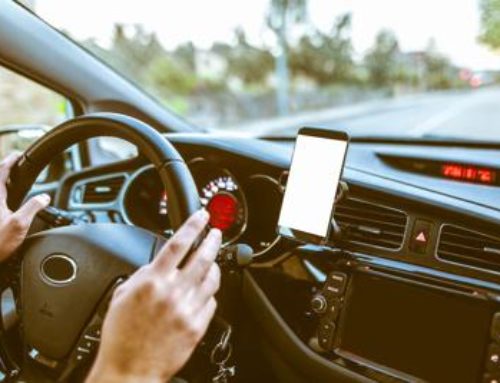Vroom…scooters have taken off as a hot transportation method. The electric scooter craze has hit the streets in many areas of the country and burst onto the scene in recent news. What’s the scoop on the new (ish) scooter surge and why has it caused a big stir?
Move over Uber and Lyft…there’s a new rideshare in town. Rideshare options have steadily been increasing in our Nation’s cities. Recently, electric scooters have been the newbie zipping around town. Sharable electric scooters are the latest to join a growing ridesharing community that’s attempting to revolutionize the way we get around cities and cruise the streets. These scooters, like the Ubers and Lyfts that came before them, are facing their own share of questions and issues. The scooter shares have been spreading around the US and the world, due to their convenience and functionality. But with the convenience has come controversy. In fact, in many cities the scooters are gone (temporarily) as quickly as they arrived.
Where and when did scooters break onto the scene? Thanks to three well-funded, tech scooter startup companies, Bird, Lime and Spin, the rental scooters were quick to zip onto the streets and impact the urban transportation scene. California is the main hot spot for scooters in the U.S., but they have also popped up in Texas, Washington D.C., North Carolina, Florida and other states throughout the country. These smartphone apps have set out to revolutionize the way people get around. For a few bucks, you can activate a lightweight electric scooter, ride it to your destination, and simply leave it there. Electric scooters are placed on the sidewalk with onboard indicators to use a phone app to pay for and use it. When done with a ride, the user leaves the scooter and it becomes ready for the next user. The phone app lets users know where to find a scooter, along with other information. For many people it sounds like a convenient, affordable way to travel short distances. In fact, the scooter program is so wildly popular in Miami, nearly 10,000 residents took 30,000 rides since June. But, scooting around town hasn’t proved to be so simple.
Scooter startups have drawn fire from pedestrian advocates, politicians, annoyed citizens and even lawyers. And…the fire is a hot one. Many see the electric scooter share as potentially having transportation and economic benefits but on the flip side there is also concern about the safety and use of the scooters.
The lack of rules and regulations has created controversy and uproar. There is a crackdown on use of the scooter share as state laws are saying the scooters aren’t street legal until cities regulate them and a temporary ban has been put in place. Essentially, the scooter companies launched prior to there being proper structure and ordinances in place and now there is a game of catch up to try to keep people safe. Similarly, like other ridesharing services like Uber and Lyft, many cities were not prepared. Cities have to figure out how to minimize problems and establish rules and regulations for this popular, new, car-free transportation method. For example, in Miami, two major scooter providers are temporarily pulling out after the city attorneys issued cease and desist letters stating they were in violation of Florida statutes.
The state of scooter affairs prior to the temporary ban was one that many considered chaotic out of control. Now, it is important that riders know and understand how to safely and lawfully ride.
What are some of the scooter share concerns?
- riding on sidewalks vs. streets
- blocking sidewalks
- kids under 18 riding the scooters
- helmet use (or lack thereof)
- careless riders
- scooter vs. pedestrian accidents
- scooters piling up in the wrong places
- rider injuries and scooter malfunctions
- pedestrians tripping on scooters
- vandalism and theft
- what happens in scooter accidents
- liability issues
What are some of the scooter share benefits?
- economical
- health and wellness
- community building
- convenient
- reduce congestion
- reduce carbon emissions
- mental and physical impacts
- reduce parking issues
So even though scooter shares have already popped up in some places, cities are now scrambling to write legislation to ensure the scooter share industry can be rolled out safely and within the context of each city. This is why there’s a temporary ban to figure out the logistics. Cities are saying that rules, procedures and safety compliance are all a part of successful scooting.
There is money in the scooter shares. For example, Bird, which launched last September, is now valued at nearly $2 billion. A rival of Bird’s, Lime, is valued at $1 billion. It has the potential to be a big business once the rules and regulations are in place. The companies themselves seem to be on board as well. According to a Bird spokesperson, “While we do not comment on specific incidents, safety is a top priority for Bird. We have taken several steps to communicate to our riders how to safely and lawfully ride a Bird. This includes: requiring riders to upload a valid driver’s license and confirm they are older than 18, providing an in-app tutorial, posting clear safety instructions on each Bird, and providing free helmets to all riders who request one. At last count, Bird has distributed more than 30,000 free helmets.” It’s not clear how strictly these rules are enforced.
Many cities are facing some of the same challenges. In most places, the scooters quickly created a hazardous scene and its clear regulations are going to be put in place. Although cities have yet to release data on how many people have been injured in accidents involving the electric scooters, there have been reports of concussions, broken bones and intoxicated driving have started to pop up.
For a future of smooth rides, the Scooter companies and cities need to work together. For example in Miami, two scooter companies Lime and Bird, have pulled the scooters out of the city after releasing them in April and May. According to the Miami Herald, The companies received cease and desist letters from city attorneys, saying the companies violated Florida statutes. The Miami City Commission will be discussing the electric scooter situation.
Miami is the latest on a list of cities that have taken action against the scooter craze. This is sending the clear message to companies that cities don’t want to be surprised with public transportation methods without regulations in place that govern their use. Many cities are in discussion with the companies to create ordinances. And it might be a sign to cities where the scooters have not yet landed, that they may need to start thinking ahead of time in preparation.
The scooter share craze is a hot topic. At Schulze Law, we are ever learning and staying abreast of the very latest in the field so that we can best protect and fight for our clients’ rights. Keep following for updates on scooter rideshares or contact us with any questions.
CALL NOW: 857-300-5300 Emergency After Hours Number: 800-894-9267 XLAW1 (5291)
References: Bloomberg, The Miami Herald
Photo cred: The Miami Herald






